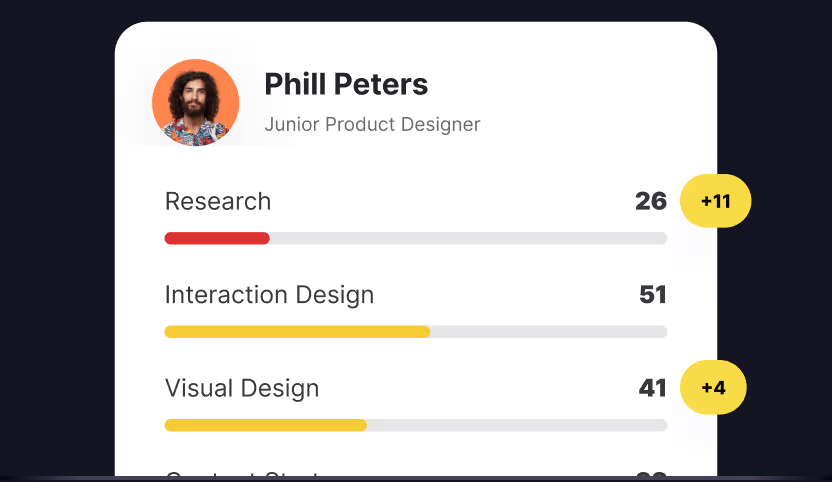
How much should you expect to make as a UX Researcher in Canada? We gathered our information through anonymous submissions from our global community of over 300,000 designers. Based on this data, UX Researcher who work in Canada make an average of $88,000 every year, ranging from about $54,000 to approximately $123,000.
Let’s break down our findings on average UX Researcher salaries by experience.
Entry-level UX Researcher salary in Canada
Entry-level UX Researchers are those who are just starting out and have no professional experience in the design industry. They may be recent university graduates or people who have decided to shift careers. If this description of entry-level UX Researchers matches you and you work in Canada, you can expect to make an average of $44,000 per year.
Junior UX Researcher salary in Canada
Junior UX Researchers usually have 1 to 3 years of experience in the field. They are still getting to know the industry, but they can already work in a team setting and produce very valuable work. In Canada, junior UX Researchers usually make about $58,000 per year.
{Resource}
Mid-level UX Researcher salary in Canada
Mid-level UX Researchers are those who have been working in the field for quite a few years (usually 3 to 8) and have gained significant experience. They are proficient in their craft and tend to produce higher-quality work than junior UX Researchers. If this description of mid-level UX Researchers matches you and you work in Canada you can expect to make an average of $80,000 per year.
Demonstrate your all-around UX design skills. Take Uxcel's UX Research assessment and start building your design Skill Graph.
{Resource}
Senior UX Researcher salary in Canada
Senior UX Researchers usually have upwards of 8 years of experience in their field. They are proficient in what they do and often produce the highest-quality work in the shortest time. In Canada, senior UX Researchers usually make about $104,000 per year.
What Do UX Researchers Do?
UX researchers are responsible for discovering user needs through research, usability studies, and collaboration with cross-functional teams. Their work can also involve the analysis of research findings, user testing, and presentation of research findings to diverse audiences. UX designers often perform research tasks at smaller companies that don't have a dedicated UX researcher.
The most common responsibilities of a UX researcher include:
- Planning and conducting user research using qualitative and quantitative methods
- Collaborating with designers, other researchers, product managers, and engineers to formulate roadmaps
- Generating insights based on the research findings
- Ensuring a user-centric approach at all levels of product development and across the team
Elevate your career by becoming a certified UX Researcher with Uxcel's exam-based professional certification. Set yourself apart from the competition and boost your chances of securing a high-paying UX researcher position.
Skills to Increase UX Researcher Salaries
In addition to hard skills (conducting user interviews and focus groups, running surveys and contextual inquiries, analyzing statistics, etc.), UX researchers must have high emotional intelligence, knowledge of user psychology, and exceptional communication skills to interact with users and stakeholders.
- Leadership abilities, including project management, design thinking, and workshop facilitation. Depending on your level of seniority, team management skills may also be required. Test your skills with Uxcel's Leadership assessment and see how you measure up to other designers worldwide.
- Team working and communication skills, as well as critical thinking and problem solving, creativity, openness to feedback, and effective time management. Empathy is especially important, both toward your teammates and your users. Test your skills with Uxcel's Core Qualities assessment and see how you measure up to other designers worldwide.
- The ability to conduct quantitative research and analyze your findings mathematically, producing quantitative research artifacts. Test your skills with Uxcel's Quantitative Research skill test and see how you measure up against other designers and researchers worldwide.
- The ability to conduct qualitative research and usability testing and analyze your findings thematically, producing qualitative research artifacts. Take Uxcel's Qualitative Research and Usability Testing skill tests, and see how you measure up against other designers and researchers worldwide. Or take Uxcel's Research assessment to put your skills to the test.
- Basic knowledge of prototyping and wireframing in high and low fidelity, which will help you communicate and test your ideas and experiments. Test your skills with Uxcel's Prototyping and Wireframing skill tests, and see how you measure up to other designers worldwide.
- An understanding of HTML and CSS can help when it comes to prototyping. Test your knowledge of these languages with Uxcel's HTML and CSS skill tests, and see how you measure up to other designers worldwide.
Career Paths for UX Researchers
.avif)
To become a successful UX researcher, you may obtain a bachelor's degree in computer science, human-computer interaction, psychology, statistics, applied statistics, design, or anthropology. If getting a degree isn't your goal, you can find numerous ways to learn about the tools and techniques of user research — certified courses, boot camps, blogs, and podcasts. You can enrich your portfolio by practicing and conducting a heuristic evaluation for a site, conducting user interviews and analyzing the results, or running a UX survey.




